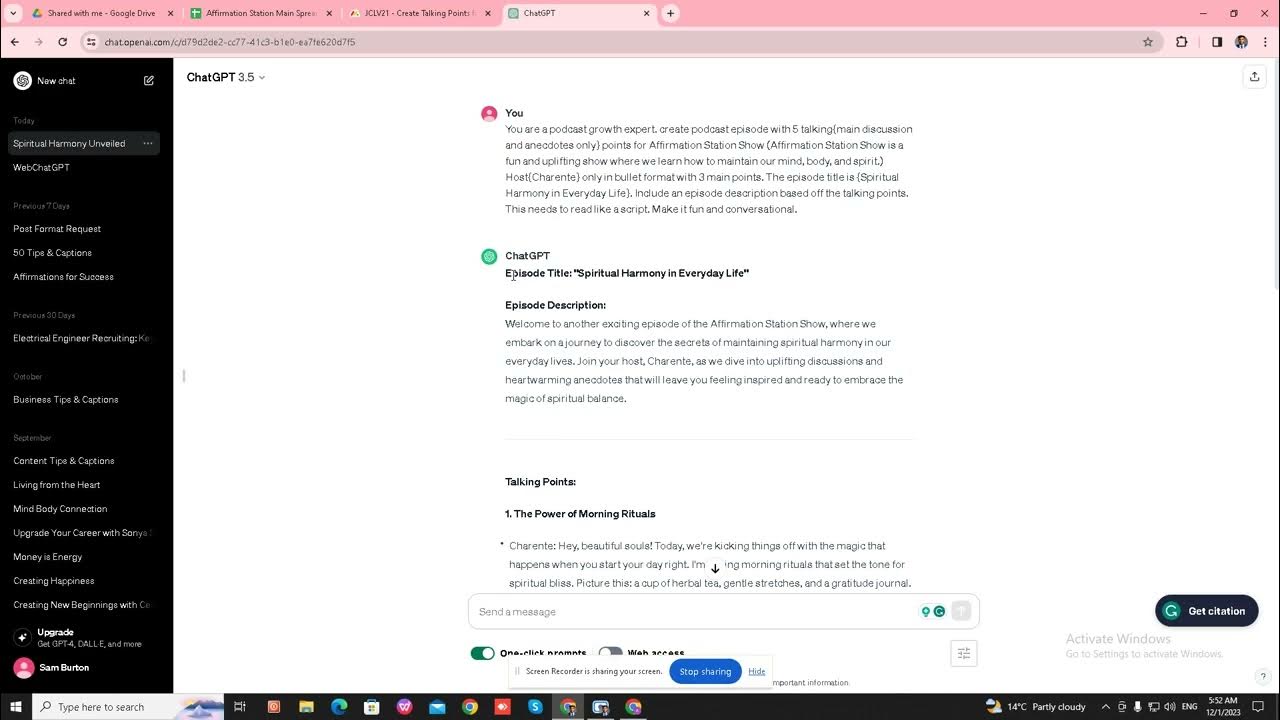Should You Be Taking A Zinc Supplement?
Summary
TLDRIn this episode of Talking with Docs, Dr. Paul Sal and Dr. Brad Wi explore the vital role of zinc in the human body. They discuss zinc’s importance for wound healing, enzyme function, immune support, protein synthesis, and growth. The doctors explain how deficiency can present through hair loss, slow-healing wounds, skin issues, loss of taste, and increased infections, particularly in the elderly or those with limited diets. They highlight rich dietary sources, when supplementation may be beneficial, and important interactions with iron and medications. Practical advice on maintaining adequate zinc intake and its role in cold recovery is also shared.
Takeaways
- 🧬 Zinc is element number 30 on the periodic table and a divalent cation in the transitional metal group.
- 💉 Zinc is essential for wound healing, enzyme function, immune support, protein synthesis, and growth & development.
- 🍽️ Most people in developed countries who eat a diverse diet typically get enough zinc from food.
- 🌾 Diets high in white rice or refined grains, or limited access to diverse foods, increase the risk of zinc deficiency.
- 🩺 Signs of zinc deficiency include hair loss, slow wound healing, skin issues, loss of taste/appetite, poor growth, and increased infections.
- 🥩 Good sources of zinc include meat, poultry, eggs, and dairy, while plant-based sources include legumes, nuts, seeds, and quinoa.
- 🍲 Phytates in some plant foods reduce zinc absorption, but soaking and cooking can improve bioavailability.
- 💊 Zinc supplementation may benefit the elderly, those with absorption issues, or individuals showing deficiency signs.
- 🤧 Early zinc supplementation may reduce the severity and duration of the common cold, but regular use does not prevent it in non-deficient individuals.
- ⚠️ Zinc can compete with iron for absorption, and medications like PPIs may reduce zinc uptake; timing and medical guidance are important.
- 🏋️ Zinc is not stored efficiently in the body, primarily residing in muscles and bones, so daily intake is necessary.
Q & A
Why is zinc important for the body?
-Zinc plays a crucial role in various body functions, such as wound healing, enzyme function, immune support, protein synthesis, and growth development. It is involved in over 300 enzymes and supports immune functions by helping T-cells and macrophages deal with viruses.
What are the main signs of zinc deficiency?
-Zinc deficiency can manifest in several ways, including hair loss, difficulty with wound healing, skin rashes, eczema, loss of appetite, and impaired growth in children. It can also increase the risk of infections due to its role in immune function.
Who is most likely to be deficient in zinc?
-People at higher risk for zinc deficiency include those living in underdeveloped countries with limited food diversity, the elderly, and individuals with malnutrition or food insecurity. Aging can also affect zinc absorption, making it more of a concern as we age.
How does zinc absorption change with age?
-As people age, the efficiency of the gastrointestinal (GI) tract decreases, affecting the absorption of zinc. This can lead to a higher risk of deficiency in older adults.
What foods are good sources of zinc?
-Zinc is found in various foods, particularly animal products like meat, pork, chicken, eggs, and dairy. For plant-based eaters, quinoa, beans, legumes, nuts, and seeds are good sources, though certain plants contain compounds like phytates that reduce zinc's bioavailability.
What is the Recommended Daily Allowance (RDA) for zinc?
-The RDA for zinc is typically around 10 milligrams per day, although it may be slightly higher for teenagers due to their rapid growth. This value may vary based on age, gender, and specific needs.
Can taking zinc supplements help prevent the common cold?
-There is evidence that taking zinc supplements early in the onset of a cold can reduce its severity and duration. However, regular supplementation does not prevent colds unless the individual is zinc deficient.
Should people take zinc supplements routinely?
-Most people in developed countries with a diverse diet are unlikely to need zinc supplements. However, certain groups, like the elderly or those with specific health issues, may benefit from supplementation. Always consult with a healthcare provider before starting supplements.
Can zinc interact with other minerals or medications?
-Yes, zinc can compete with iron for absorption. If someone is taking iron supplements for anemia, they should space out the intake of zinc and iron. Additionally, chronic use of proton pump inhibitors (PPIs) can impair zinc absorption, making supplementation necessary for some people.
What is the role of zinc in wound healing?
-Zinc is essential for wound healing, as it aids in protein synthesis and immune function. A deficiency can lead to delayed wound healing, which increases the risk of infection, especially after surgery or injuries.
Outlines

This section is available to paid users only. Please upgrade to access this part.
Upgrade NowMindmap

This section is available to paid users only. Please upgrade to access this part.
Upgrade NowKeywords

This section is available to paid users only. Please upgrade to access this part.
Upgrade NowHighlights

This section is available to paid users only. Please upgrade to access this part.
Upgrade NowTranscripts

This section is available to paid users only. Please upgrade to access this part.
Upgrade NowBrowse More Related Video
5.0 / 5 (0 votes)





